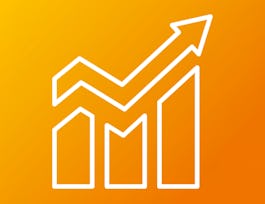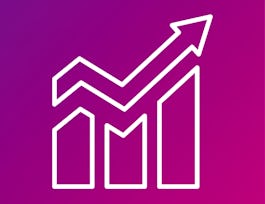Biostatistics is the application of statistical reasoning to the life sciences, and it's the key to unlocking the data gathered by researchers and the evidence presented in the scientific public health literature. In this course, we'll focus on the use of simple regression methods to determine the relationship between an outcome of interest and a single predictor via a linear equation. Along the way, you'll be introduced to a variety of methods, and you'll practice interpreting data and performing calculations on real data from published studies. Topics include logistic regression, confidence intervals, p-values, Cox regression, confounding, adjustment, and effect modification.


Simple Regression Analysis in Public Health
This course is part of Biostatistics in Public Health Specialization
Taught in English
Some content may not be translated

Instructor: John McGready, PhD, MS
13,528 already enrolled
Included with 
Course
(363 reviews)
Recommended experience
What you'll learn
Practice simple regression methods to determine relationships between an outcome and a predictor
Recognize confounding in statistical analysis
Perform estimate adjustments
Skills you'll gain
Details to know

Add to your LinkedIn profile
9 quizzes
Course
(363 reviews)
Recommended experience
See how employees at top companies are mastering in-demand skills

Build your subject-matter expertise
- Learn new concepts from industry experts
- Gain a foundational understanding of a subject or tool
- Develop job-relevant skills with hands-on projects
- Earn a shareable career certificate


Earn a career certificate
Add this credential to your LinkedIn profile, resume, or CV
Share it on social media and in your performance review

There are 5 modules in this course
Module one covers simple regression, the four different types of regression, commonalities between them, and simple linear aggression. Before completing the graded quiz, you can test your knowledge with the practice quiz.
What's included
8 videos2 readings2 quizzes
Within module two, we will look at logistic regression, create confidence intervals, and estimate p-values. You will have the opportunity to test your knowledge in both a practice quiz and a graded quiz.
What's included
7 videos2 readings2 quizzes
Module three focuses on Cox regression with different predictors. You will have the opportunity to test your knowledge first with the practice quiz and, then, with the graded quiz.
What's included
7 videos2 readings2 quizzes
Within module four, you will look at confounding and adjustment, and unadjusted and adjusted association estimates. Additionally, you will learn about effect modification. Similar to previous modules, you will first take a practice quiz before completing the graded quiz.
What's included
10 videos1 reading2 quizzes
During this module, you get the chance to demonstrate what you've learned by putting yourself in the shoes of biostatistical consultant on two different studies, one about self-administration of injectable contraception and one about medical appointment scheduling in Brazil. The two research teams have asked you to help them interpret previously published results in order to inform the planning of their own studies. If you've already taken other courses in this specialization, then this scenario will be familiar.
What's included
1 reading1 quiz
Instructor

Offered by
Recommended if you're interested in Public Health

Johns Hopkins University

Imperial College London

University of Michigan

Imperial College London
Why people choose Coursera for their career




Learner reviews
Showing 3 of 363
363 reviews
- 5 stars
76.58%
- 4 stars
19.28%
- 3 stars
2.75%
- 2 stars
1.10%
- 1 star
0.27%
New to Public Health? Start here.

Open new doors with Coursera Plus
Unlimited access to 7,000+ world-class courses, hands-on projects, and job-ready certificate programs - all included in your subscription
Advance your career with an online degree
Earn a degree from world-class universities - 100% online
Join over 3,400 global companies that choose Coursera for Business
Upskill your employees to excel in the digital economy
Frequently asked questions
Access to lectures and assignments depends on your type of enrollment. If you take a course in audit mode, you will be able to see most course materials for free. To access graded assignments and to earn a Certificate, you will need to purchase the Certificate experience, during or after your audit. If you don't see the audit option:
The course may not offer an audit option. You can try a Free Trial instead, or apply for Financial Aid.
The course may offer 'Full Course, No Certificate' instead. This option lets you see all course materials, submit required assessments, and get a final grade. This also means that you will not be able to purchase a Certificate experience.
When you enroll in the course, you get access to all of the courses in the Specialization, and you earn a certificate when you complete the work. Your electronic Certificate will be added to your Accomplishments page - from there, you can print your Certificate or add it to your LinkedIn profile. If you only want to read and view the course content, you can audit the course for free.
If you subscribed, you get a 7-day free trial during which you can cancel at no penalty. After that, we don’t give refunds, but you can cancel your subscription at any time. See our full refund policy.

